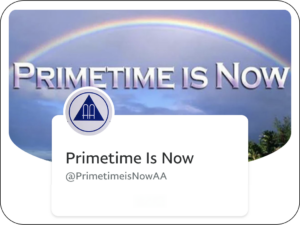The Tiebout Papers
TIEBOUT PAPERS STUDY GUIDE 2ND EDITION PDF
Tiebout Resources on tiebout.egbok.com
Tiebout home page on thejaywalker.net

Dr. Harry M. Tiebout
Dr. Harry M. Tiebout, a psychiatrist, was an early pioneer in coupling the principles and philosophy of Alcoholics Anonymous with psychiatric knowledge of alcoholism. A strong supporter of A.A. throughout his life, he consistently worked for acceptance of his views concerning alcoholism the medical and psychiatric professions. He served on the Board of Trustees for A.A. from 1957 to 1966, and was chairman of the National Council on Alcoholism in 1950.
_______________________________________________
The 12 Steps as Ego Deflating Devices*
(Letter from Dr. Tiebout on The 12 Steps as Ego Deflating Devices )
What does Surrender Mean?
For reasons still obscure, the program and the fellowship of AA could cause a surrender which in turn would lead to a period of no drinking. It became ever more apparent that in everyone’s psyche there existed an unconquerable ego which bitterly opposed any thought of defeat. Until that ego was somehow reduced or rendered ineffective, no likelihood of surrender could be anticipated.
AA, still very much in its infancy, was celebrating a third or fourth anniversary of one of the groups. The speaker immediately preceding me told in detail of the efforts of his local group—which consisted of two men—to get him to dry up and become its third member. After several months of vain efforts on their part and repeated nose dives on his, the speaker went on to say: “Finally, I got cut down to size and have been sober ever since,” a matter of some two or three years. When my turn came to speak, I used his phrase “cut down to size” as a text around which to weave my remarks. Before long, out of the corner of my eye, I became conscious of a disconcerting stare. It was coming from the previous speaker.
It was perfectly clear: He was utterly amazed that he had said anything which made sense to a psychiatrist. The incident showed that two people, one approaching the matter clinically and the other relying on his own intuitive report of what had happened to him, both came up with exactly the same observation: the need for ego reduction. It is common knowledge that a return of the full-fledged ego can happen at any time. Years of sobriety are no insurance against its resurgence. No AA’s, regardless of their veteran status, can ever relax their guard against a reviving ego.
The function of surrender in AA is now clear. It produces that stopping by causing the individual to say, “I quit. I give up on my headstrong ways. I’ve learned my lesson.” Very often for the first time in that individual’s adult career, he has encountered the necessary discipline that halts him in his headlong pace. Actually, he is lucky to have within him the capacity to surrender. It is that which differentiates him from the wild animals. And this happens because we can surrender and truly feel, “Thy will, not mine, be done.”
Unfortunately, that ego will return unless the individual learns to accept a disciplined way of life, which means the tendency toward ego comeback is permanently checked.
This is not news to AA members. They have learned that a single surrender is not enough. Under the wise leadership of the AA “founding fathers” the need for continued endeavor to maintain that miracle has been steadily stressed. The Twelve Steps urge repeated inventories, not just one, and the Twelfth Step is in itself a routine reminder that one must work at preserving sobriety. Moreover, it is referred to as Twelfth Step work—which is exactly what it is. By that time, the miracle is for the other person.
-Dr. Harry M. Tiebout, M.D.
*Reprinted from 1953 QUARTERLY JOURNAL OF STUDIES ON ALCOHOL Vol. 14, pp. 58-68
New Brunswick, N.J. 08903
Printed in the United States of America
The Tiebout Collection
The Tiebout Collection consists of four papers written during the 1950s, drawing from personal stories and the author’s vast experience in working with and treating alcoholics. Dr. Tiebout was an outstanding psychiatrist and pioneer in the field of addictions. The four papers described below present several of his significant concepts.
This collection was first published in 1990 by the Hazelden Foundation, which offers a variety of information on chemical dependency, addiction, mental diseases, and other related medical and psychological diseases. This publication does not necessarily represent Hazelden or its programs, nor does Hazelden officially speak for any Twelve Step Program. Minor editing has been done to this booklet in accordance with the publishers (Hazelden’s) editorial style and grammatical usage.
Tiebout Papers on thejaywalker.net:
- The Act of Surrender in the Therapeutic Process
- Direct Treatment of a Symptom
- The Ego Factors in Surrender in Alcoholism
- Surrender Versus Compliance in Therapy

